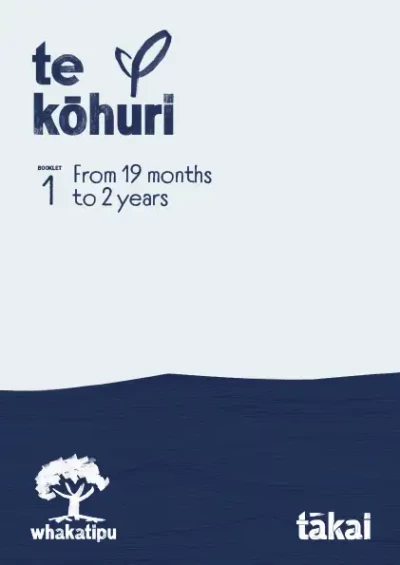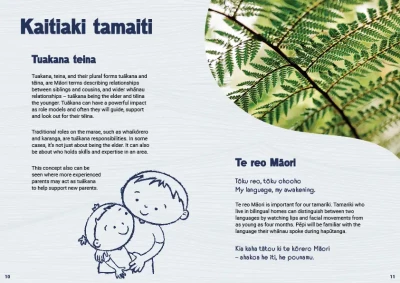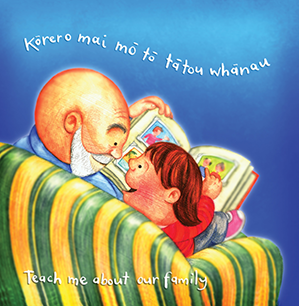
Tuakana teina
Tuakana teina describes the relationship between siblings and the roles each has. It also extends to other relationships, such as experienced parents acting as tuakana to less experienced parents.
Tuakana, teina, and their plural forms tuākana and tēina, are Māori terms describing relationships between siblings and cousins and wider whānau relationships – tuākana being the elder and tēina the younger. Tuākana can have a powerful impact as role models and often they will guide, support and look out for their tēina.
Traditional roles
Traditional roles on the marae, such as whaikōrero and karanga, are tuākana responsibilities. In some cases, it’s not just about being the elder. It can also be about who holds skills and expertise in an area.
Ngāti Toa rangatira (leader) Te Rauparaha is an example of someone who took on tuākana roles although he wasn’t the most senior chief of the tribe. He became the head of his iwi because of his leadership and strategic military skills.
Exploring sibling relationships
How you approach the topic of sibling relationships will depend on each individual whānau. You might want to start by exploring the relationships the parents have or had with their own siblings or cousins.
Conversation ideas
Pretend play
Pretend play is a fun way for whānau to share whānau values and routines. It is often enjoyed by siblings as they experiment with and practise adult roles. It is a perfect vehicle for parents to encourage tuakana teina responsibilities.
Who are your tuakana?
The concept of tuakana teina can relate to experienced parents acting as tuākana to parents who are new to parenting or less experienced.
As a whānau supporter, you will notice the relationships within whānau. You have a role in supporting and promoting positive relationships. This includes relationships between parents and their tamariki, between the parents themselves, and between the wider whānau and the community. Look for ways to help connect parents with others who may be able to provide tuākana support.
 pdf 10 MB
pdf 10 MB













